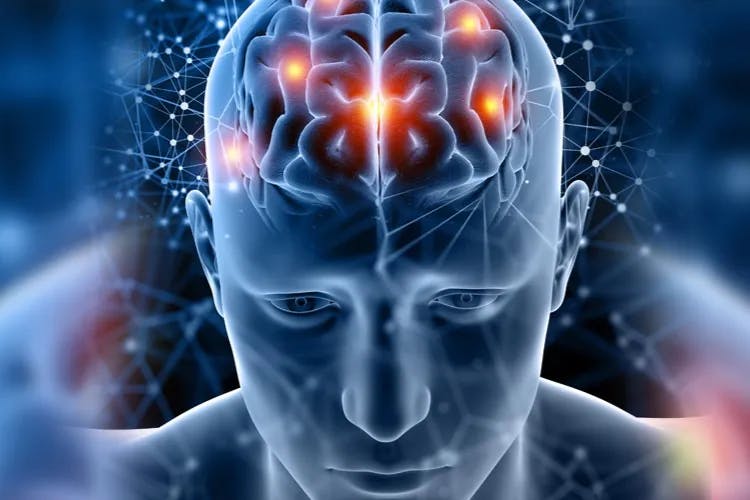.97077bf4.webp&w=640&q=75)
Concussions

Concussions and post concussive syndrome are common but often misunderstood conditions. A concussion is a type of brain injury caused by a blow to the head or body, resulting in temporary brain dysfunction. Symptoms can range from headaches and dizziness to memory loss and difficulty concentrating.Post concussive syndrome, on the other hand, is a group of symptoms that can occur after a concussion, including persistent headaches, irritability, and sleep disturbances. These symptoms can last for weeks or even months, and can interfere with daily activities and quality of life.At our neurology clinic, our team of experts is dedicated to providing comprehensive care for patients with concussions and post concussive syndrome. From thorough assessments to personalized treatment plans, we are committed to helping our patients recover and return to their normal lives.Don't let concussions and post concussive syndrome control your life. Book an appointment with us today and take the first step towards recovery.
Frequently Asked Questions
What is post-concussive syndrome?
Post-concussive syndrome (PCS) is a set of symptoms that can occur after a person has suffered a concussion. A concussion is a type of traumatic brain injury (TBI) caused by a blow to the head or a sudden jolt to the body. This can cause the brain to move rapidly inside the skull, leading to damage to the brain cells and a disruption of the normal functioning of the brain.
What are the symptoms of post-concussive syndrome?
The symptoms of PCS can vary depending on the severity of the concussion and the individual’s unique brain anatomy. Some common symptoms of PCS include:
Headaches
Dizziness and balance problems
Nausea and vomiting
Sensitivity to light and noise
Fatigue and drowsiness
Memory and concentration problems
Mood changes, including irritability and anxiety
Sleep disturbances, such as insomnia and nightmares
Loss of interest in activities and hobbies
How does one know they have post-concussive syndrome?
If you or a loved one has suffered a concussion, it’s important to seek medical attention immediately. A healthcare provider can assess the severity of the injury and recommend appropriate treatment.
If you are experiencing any of the symptoms of PCS, your healthcare provider may conduct a thorough neurological examination, including a neuropsychological assessment, to determine if you have PCS. Your provider may also order imaging tests, such as a CT scan or MRI, to evaluate the structure and function of your brain.
What are the most common treatments for post-concussive syndrome?
The treatment of PCS often involves a combination of medications, physical therapy, and cognitive rehabilitation. Your healthcare provider may prescribe medications to manage your symptoms, such as pain relievers for headaches, anti-nausea medications for vomiting, and sleep aids for insomnia.
What are the long-term effects of post-concussive syndrome?
The long-term effects of PCS can vary depending on the severity of the concussion and the individual’s unique brain anatomy. In some cases, PCS can resolve within a few weeks or months, while in others, the symptoms may persist for years.
Some possible long-term effects of PCS include:
Persistent headaches and dizziness
Cognitive impairment, including memory loss and poor concentration
Mood changes, such as depression and anxiety
Sleep disturbances
Persistent fatigue
Physical coordination and balance problems
Sensitivity to light and noise
Can post-concussive syndrome lead to other medical conditions?
Yes, in some cases, PCS can lead to other medical conditions. For example, chronic headaches and dizziness can lead to chronic pain and fatigue, which can affect your ability to perform daily activities.
PCS can also increase your risk of developing mental health conditions, such as depression and anxiety. These conditions can affect your overall quality of life and may require additional treatment.
Additionally, if your concussion was caused by a car accident, fall, or other traumatic event, you may be at an increased risk of developing post-traumatic stress disorder (PTSD). PTSD is a mental health condition that can develop after experiencing a traumatic event. Symptoms of PTSD include flashbacks, nightmares, avoidance of triggers, and increased anxiety and irritability.
In some cases, PCS can also lead to other neurological conditions, such as chronic traumatic encephalopathy (CTE). CTE is a progressive brain disease caused by repeated head injuries. Symptoms of CTE include cognitive decline, memory loss, mood changes, and behavioral changes.
It’s important to seek medical attention and follow your healthcare provider’s recommendations to prevent the development of these potential complications.